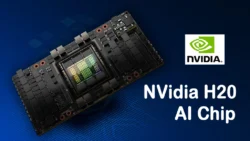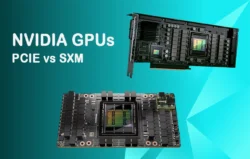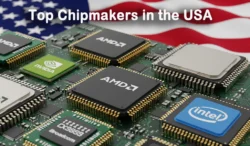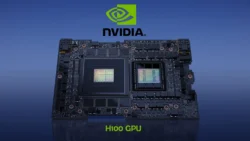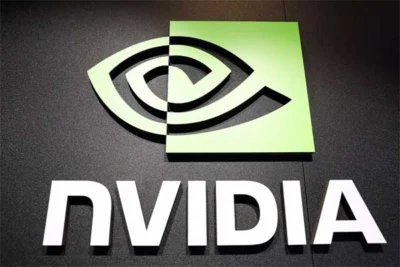
Aug 22, 2025 (UTC) - Nvidia, a leading global semiconductor company, reportedly directed its suppliers to suspend production of its H20 AI chip, designed specifically for the Chinese market to comply with U.S. export restrictions. This decision follows warnings from Beijing to local companies, citing cybersecurity risks in using Nvidia’s chips and urging a shift toward domestic alternatives like Huawei’s Ascend 910B. The move highlights escalating tensions in the U.S.-China tech rivalry, with AI hardware at the center of geopolitical and economic friction.
The H20 chip was Nvidia’s strategic response to U.S. sanctions prohibiting the export of advanced AI GPUs, such as the H100 and H200, to China. Engineered with reduced computational power to meet regulatory requirements, the H20 allowed Nvidia to maintain its presence in China, a critical market that once accounted for a significant portion of its revenue. Production had recently scaled up after months of regulatory hurdles, with approvals secured earlier in 2025. However, this progress has been disrupted by China’s new stance against foreign chips.
Nvidia instructed key suppliers, including Arizona-based Amkor Technology, which handles advanced packaging for the H20, to pause production. This follows directives from Chinese authorities encouraging state-linked enterprises to prioritize domestic processors over foreign ones, part of a broader push for technological self-reliance under initiatives like “Made in China 2025.”
Reasons for the Production Halt
The suspension stems from Beijing’s concerns over potential “backdoors” in Nvidia’s chips, which authorities claim could allow U.S. access to sensitive data. Chinese regulators have advised companies to avoid purchasing the H20, promoting alternatives like Huawei’s Ascend series, which has gained traction with government backing. This aligns with China’s strategy to reduce dependence on U.S. technology amid ongoing trade restrictions.
Nvidia has strongly refuted these allegations. A company spokesperson stated, “We constantly manage our supply chain to address market conditions. Cybersecurity is critically important to us. NVIDIA does not have ‘backdoors’ in our chips that would give anyone a remote way to access or control them. The market can use the H20 with confidence.” Despite this, Nvidia’s decision to halt production reflects a pragmatic response to declining demand and increasing regulatory pressure in China.
Market and Industry Implications
The halt could significantly impact Nvidia’s revenue from China, previously a major market before U.S. export controls tightened. Industry analysts suggest Nvidia may pivot to developing alternative chips, such as the rumored B30, to adapt to China’s evolving demands. Competitors like AMD, which also produce China-compliant AI chips, could gain market share, though they may face similar scrutiny from Chinese authorities wary of foreign technology.
Market reactions have been relatively subdued, with Nvidia’s stock (NVDA) showing a slight dip in pre-market trading on August 22, 2025. However, the long-term implications are substantial, as China’s push for domestic chips could reshape the global semiconductor landscape. Huawei’s Ascend 910B, supported by state incentives, is emerging as a strong contender, potentially eroding Nvidia’s market share in AI hardware.
Geopolitical Context
This development underscores the deepening U.S.-China tech decoupling. U.S. export controls, intensified since the Trump administration, aim to limit China’s access to advanced AI technologies due to national security concerns. In response, China has accelerated investments in its semiconductor industry, seeking to close the gap with Western manufacturers. The H20’s production halt illustrates how both nations’ policies are fragmenting global supply chains, potentially increasing costs and slowing innovation.
Outlook and Future Considerations
Nvidia has not disclosed whether the production halt is temporary or permanent, nor has it outlined specific plans for resuming sales in China. The company’s upcoming earnings reports and statements from Chinese regulators will be critical in understanding the next steps. This situation not only affects Nvidia but also signals challenges for other U.S. tech firms navigating China’s increasingly protectionist market. The broader tech industry, from chipmakers to AI developers, will feel the ripple effects as the U.S.-China tech rivalry continues to shape the future of global innovation.
